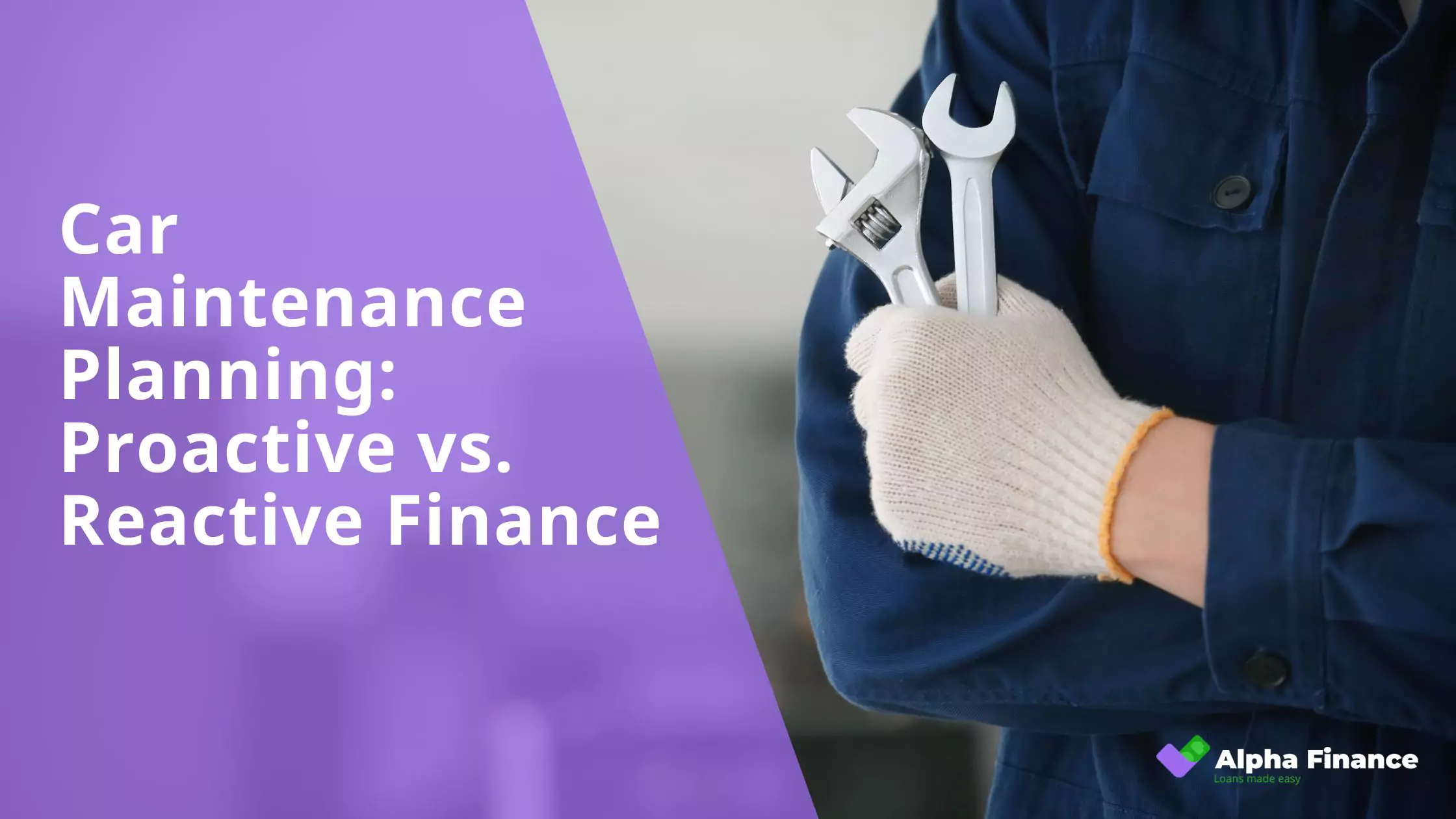Think car finance only adds to your debt burden? Think again! While the word “debt” often conjures images of negative credit scores, when approached strategically, a car loan can become a powerful tool in your credit-building arsenal. It’s not just about acquiring a vehicle; it’s about demonstrating responsible financial behaviour that lenders look favourably upon. This guide will illuminate the mechanisms through which car finance can positively impact your credit history and provide you with actionable steps to leverage it effectively. The key takeaway? It’s not just about getting a car loan, it’s about managing it impeccably.
Understanding the Credit Score Factors
Your credit score isn’t just a random number; it’s a dynamic reflection of your financial behaviour, meticulously calculated based on the information held in your credit report. Understanding the weight and nuances of each contributing factor is crucial to appreciating how strategic car finance can play a positive role.
Payment History (35%):
-
This is the single most influential factor. Lenders want to see a consistent pattern of repaying debts on time. Every loan, credit card, and even utility bill payments (in some cases) contributes to this history.
- How Car Finance Plays a Role: Each successful, on-time monthly instalment on your car loan adds a positive mark to your payment history. Conversely, even a single late payment can have a disproportionately negative impact, signaling a higher risk to potential lenders. Consistent on-time car loan payments over months and years build a strong, positive payment history, demonstrating your reliability in meeting financial obligations.
- Nuances to Consider: The recency and severity of late payments matter. A payment that’s a few days late is less damaging than one that’s 30, 60, or 90+ days overdue. A history of consistently on-time payments far outweighs occasional minor slips.
Amounts Owed/Credit Utilisation (30%):
-
-
This factor examines the total amount of credit you’re currently using compared to your total available credit. It’s particularly relevant for revolving credit like credit cards.
- How Car Finance Plays a Role: While taking out a car loan increases your overall debt, the key here is the management of that specific debt through regular payments. Unlike credit card utilisation (where a high balance compared to your limit is negative), a car loan is an instalment loan with a fixed repayment schedule. As you make payments, your outstanding car loan balance gradually decreases, which can indirectly contribute positively over time as your overall debt picture evolves. The focus for car finance isn’t about keeping the balance low relative to a limit, but rather demonstrating consistent repayment.
- Nuances to Consider: Avoid taking out a car loan that pushes your overall debt burden to an unsustainable level. Lenders consider your debt-to-income ratio. While the car loan itself isn’t revolving credit utilisation, having too many other debts alongside it could raise red flags.
-
Length of Credit History (15%):
-
The longer you’ve been responsibly managing credit accounts, the better it generally looks to lenders. A longer positive track record provides more data points to assess your creditworthiness.
- How Car Finance Plays a Role: As you maintain your car loan and make timely payments over its term (which can be several years), you’re adding to the length of your positive credit history. This demonstrates a sustained ability to manage debt responsibly over an extended period, which is highly valued by lenders. Even after the loan is fully paid off, the positive payment history associated with it remains on your credit report for a significant time.
- Nuances to Consider: Don’t close older, well-managed credit accounts simply because you’re not using them. These contribute to your credit history length. A new car loan adds to your credit history, but the initial impact is less significant than consistent positive payments.
Credit Mix (10%): Demonstrating Versatility:
-
Lenders like to see that you can responsibly manage different types of credit, such as revolving credit (credit cards) and instalment credit (car loans, personal loans, mortgages).
- How Car Finance Plays a Role: If your credit history primarily consists of credit cards, taking out and managing a car loan adds an instalment loan to your credit mix. This diversification can positively influence your credit score, showcasing your ability to handle different debt structures. Conversely, if you only have instalment loans, responsibly using a credit card can also improve your mix.
- Nuances to Consider: Don’t open new credit accounts solely to improve your credit mix. Only take on debt that you genuinely need and can manage responsibly. The positive impact of a diverse credit mix is secondary to factors like payment history.
New Credit (10%):
-
This factor considers recently opened accounts and the number of “hard inquiries” on your credit report. A hard inquiry occurs when you apply for new credit (like a car loan).
- How Car Finance Plays a Role: Applying for a car loan will result in a hard inquiry, which can temporarily slightly lower your credit score. However, this small dip is usually outweighed by the positive impact of consistent on-time payments on the loan. Opening a single car loan is generally not a major negative factor.
- Nuances to Consider: Avoid applying for multiple car loans (or any credit) in a short period. Each application generates a hard inquiry, and too many in quick succession can signal to lenders that you might be taking on too much debt or are financially distressed. Research and get pre-approved to narrow down your options before formally applying.
How a Car Loan Can Positively Impact Your Credit Score
Understanding the why behind credit score improvements related to car finance requires a closer look at how these loans are viewed and reported.
-
Instalment Loans vs. Revolving Credit
- Instalment Loans (e.g., Car Loans, Mortgages, Personal Loans): You borrow a fixed sum and repay it over a defined period with scheduled, fixed payments. This structure demonstrates your ability to commit to and fulfil long-term financial obligations. Successful repayment signals stability and reliability to lenders.
- Revolving Credit (e.g., Credit Cards, Lines of Credit): You have a credit limit, can borrow and repay funds repeatedly, and minimum payments may vary based on your outstanding balance. While responsible use builds credit, high utilisation (carrying large balances relative to your limit) can negatively impact your score.
- Why Instalment Loans are Positively Viewed (When Managed Well): Successfully managing an instalment loan like a car loan showcases your capacity for sustained financial discipline. Lenders see the consistent reduction of the principal balance over time as a positive indicator of your commitment to repaying debts.
-
The Power of Consistent Payments:
- Reporting to Credit Bureaus: Each month, your lender reports your payment status (on-time, late, missed) to the credit reporting agencies (Equifax, Experian, TransUnion in Australia). On-time payments are recorded as positive entries, building a strong history of responsible repayment.
- Building a Positive Track Record: Over the life of your car loan, numerous on-time payments accumulate, creating a substantial positive track record. This history becomes a key factor in future credit decisions, assuring lenders of your reliability.
- The Cumulative Effect: Each on-time payment might seem small, but their cumulative effect over the loan term is significant in bolstering your credit score.
-
Diversifying Your Credit Portfolio:
- Broadening Your Credit Profile: If your credit history is heavily weighted towards one type of credit (e.g., multiple credit cards but no loans), adding a well-managed car loan demonstrates your ability to handle different financial products with responsibility.
- Risk Mitigation for Lenders: A diverse credit mix can suggest a lower risk profile to lenders. It implies you’re not solely reliant on one form of credit and can manage obligations with varying structures and terms.
- Strategic Diversification: Again, don’t take on unnecessary debt just for the sake of diversification. The primary focus should always be on responsible management.
-
Establishing a Positive Credit History:
- For Credit Beginners: For individuals with little to no prior credit history, a car loan can be a crucial first step in establishing one. By making regular, timely payments, you begin to build a credit file that lenders can use to assess your creditworthiness in the future.
- Opening Doors to Future Credit: A positive payment history on a car loan can make it easier to qualify for other forms of credit down the line, such as credit cards with better terms, personal loans, or even a mortgage. It proves you are a reliable borrower.
- Building a Foundation for Financial Goals: A good credit history, built in part through responsible car finance management, is essential for achieving various financial goals, from renting an apartment to securing favourable interest rates on future loans.
Strategies for Using Car Finance to Improve Your Credit
Simply securing a car loan isn’t a magic bullet for a better credit score. It’s the deliberate and responsible actions you take throughout the loan term that truly make a difference. Think of these strategies as actively cultivating a positive credit history.
1. Borrow Only What You Can Afford:
-
This isn’t just about getting the car you want; it’s about ensuring the loan payments fit comfortably within your existing financial landscape.
- Deep Dive: Before even looking at cars, meticulously analyse your monthly income and expenses. Factor in all essential costs (rent/mortgage, utilities, groceries, transportation, existing debt payments) and discretionary spending. The remaining amount is what you can realistically allocate to a car payment without jeopardising your ability to meet other obligations.
- Consider the Total Cost: Don’t just focus on the monthly payment. Factor in the down payment, interest rate, loan term, and any associated fees (e.g., insurance, registration). A seemingly low monthly payment on a very long loan with a high interest rate can end up costing you significantly more in the long run and potentially strain your finances later.
- Stress Test Your Budget: Imagine unexpected expenses arising (car repairs, medical bills). Would you still be able to comfortably make your car payment? Borrowing at the absolute limit of your affordability leaves little room for financial hiccups and increases the risk of late payments.
2. Prioritise On-Time Payments Above All Else:
-
Your payment history is the most heavily weighted factor in your credit score. Consistent, timely payments are the clearest signal to lenders that you are a reliable borrower.
- Practical Steps:
- Set Up Payment Reminders: Use your phone calendar, email reminders, or banking app notifications to ensure you’re aware of upcoming due dates.
- Automate Payments: If possible, set up automatic payments from your bank account to your lender. This eliminates the risk of forgetting and ensures payments are made on time, every time. Double-check your account balance before the scheduled withdrawal.
- Understand Grace Periods (But Don’t Rely on Them): Some lenders offer a short grace period for payments. However, relying on this can be risky, and interest may still accrue. Aim to pay on or before the actual due date.
- Communicate with Your Lender: If you anticipate a temporary financial difficulty that might affect your ability to make a payment, contact your lender proactively. They may have options available, such as a temporary deferral, although interest might still accrue.
- Practical Steps:
3. Consider the Loan Term Carefully:
-
The loan term (the length of time you have to repay the loan) significantly impacts your monthly payments and the total interest you’ll pay.
- Shorter Term Advantages:
- Higher Monthly Payments: Yes, but you’ll pay off the loan faster.
- Less Total Interest Paid: You’re borrowing the money for a shorter period, so less interest accrues.
- Faster Equity Building: You own more of your car sooner.
- Demonstrates Stronger Financial Discipline: Successfully managing higher monthly payments showcases a greater capacity to handle debt.
- Longer Term Disadvantages (for Credit Building):
- Lower Monthly Payments: Makes it seem more affordable initially, but…
- More Total Interest Paid: You’re paying for the convenience of lower monthly payments over a longer time.
- Slower Equity Building: It takes longer to own your car outright.
- Potentially Less Positive Impact on Credit (in the long run): While consistent payments are key regardless of term, a shorter, successfully completed loan demonstrates a more concentrated period of responsible repayment.
- The Sweet Spot: Aim for the shortest loan term you can comfortably afford without straining your budget. This balances manageable monthly payments with a quicker path to being debt-free and a more efficient demonstration of responsible credit behaviour.
- Shorter Term Advantages:
4. Avoid Multiple Loan Applications in a Short Period: Minimising “Hard Inquiries”:
-
When you apply for a car loan, the lender pulls your credit report, resulting in a “hard inquiry.” While necessary, too many hard inquiries in a short timeframe can slightly lower your credit score.
- Why Hard Inquiries Matter: Credit bureaus see multiple applications as a potential sign that you are desperately seeking credit or taking on too much debt.
- Smart Approach:
- Research and Pre-Approval: Before visiting dealerships, research different lenders and get pre-approved for a car loan. Pre-approval gives you an idea of the loan amount and interest rate you might qualify for without multiple hard inquiries.
- Focus Your Applications: Once you have a good understanding of your options, limit your formal loan applications to only a couple of lenders you are seriously considering.
- Understand Rate Shopping Windows: Credit scoring models often recognise that consumers shop around for the best mortgage or auto loan rates. Multiple inquiries within a specific timeframe (e.g., 14-30 days) for the same type of loan may be treated as a single inquiry. However, be mindful of this window and avoid spreading out applications excessively.
5. Understand Your Loan Agreement:
-
Don’t just sign on the dotted line without fully comprehending the terms of your car loan.
- Key Elements to Review:
- Principal Amount: The total amount you are borrowing.
- Interest Rate (APR): The cost of borrowing, expressed as an annual percentage. Understand if it’s fixed or variable.
- Loan Term: The duration of the loan.
- Repayment Schedule: When payments are due and the amount of each payment.
- Fees and Charges: Are there any origination fees, late payment fees, or prepayment penalties?
- Collateral: Your car is the collateral for the loan. Understand what happens in case of default.
- Acceleration Clause: A clause that allows the lender to demand the entire loan balance if you default.
- Ask Questions: Don’t hesitate to ask the lender to explain anything you don’t understand. Clarity is crucial for managing your loan effectively and avoiding misunderstandings that could lead to negative credit consequences.
- Key Elements to Review:
Avoiding the Pitfalls: When Car Finance Can Hurt Your Credit
While strategic car finance can be beneficial, mismanagement can have detrimental effects on your credit score. Be aware of these pitfalls:
- The Dangers of Late or Missed Payments: As the most significant factor in your credit score, late or missed car loan payments will be reported to credit bureaus and can significantly lower your score. Consistent delinquency can have long-lasting negative consequences.
- The Impact of Default and Repossession: Failing to make payments and ultimately defaulting on your car loan can lead to repossession. This event is a major negative mark on your credit report and can severely damage your ability to obtain credit in the future.
- Taking on More Debt Than You Can Handle: Overextending yourself with a car loan that strains your finances increases the likelihood of missed payments and potential default.
- Constantly Refinancing: While refinancing can sometimes be beneficial, doing it frequently can lead to multiple hard inquiries and potentially longer loan terms, which may not be favourable for your credit in the long run.
Monitoring Your Progress
Once you’ve taken out a car loan with the goal of improving your credit, it’s essential to monitor your progress:
- Regularly Check Your Credit Report: Obtain free copies of your credit reports from all three major credit bureaus at least once a year. Review them for any inaccuracies and to track the positive impact of your on-time car loan payments.
- Monitor Your Credit Score: Many banks and credit card companies offer free credit score monitoring. Keep an eye on your score to see how it trends over time as you consistently make car payments.
- Patience is Key: Credit improvement takes time and consistent effort. Don’t expect to see a significant jump in your score overnight. Continue making timely payments, and you will gradually see positive results.
Conclusion: Driving Towards a Better Credit Future
Strategic car finance, when approached with responsibility and diligence, can be a surprisingly effective tool for building and improving your credit score. By understanding the mechanics of credit scoring, implementing smart management strategies, and avoiding potential pitfalls, you can leverage your car loan to pave the way for a brighter financial future. Remember, it’s not just about the destination (owning a car), but the journey of responsible borrowing that can significantly enhance your creditworthiness. So, buckle up and drive towards a better credit future, one on-time payment at a time.




